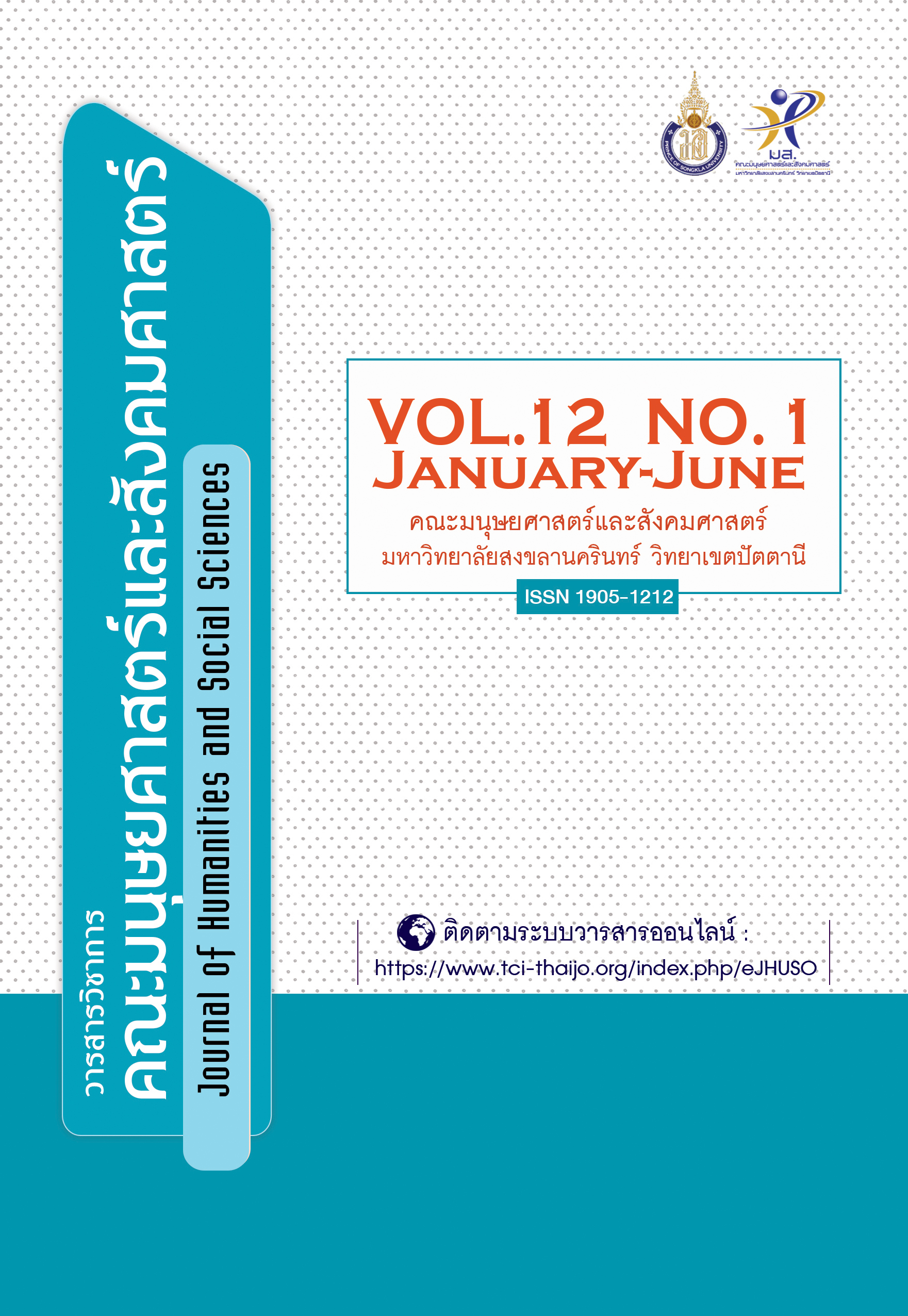กลยุทธ์การบริหารลูกค้าสัมพันธ์เชิงพาณิชย์อิเล็กทรอนิกส์ กรณีศึกษา กลุ่มผู้ประกอบการทางสังคมท่องเที่ยวเชิงอนุรักษ์
Keywords:
การจัดการความรู้, กิจการเพื่อสังคม, ผู้ประกอบการทางสังคม, การจัดการ, Knowledge Management, Social Enterprise, Social Entrepreneur, ManagementAbstract
กลยุทธ์การบริหารลูกค้าสัมพันธ์เชิงพาณิชย์อิเล็กทรอนิกส์ กรณีศึกษา กลุ่มผู้ประกอบการทางสังคมท่องเที่ยวเชิงอนุรักษ์ มุ่งศึกษาวิธีปฎิบัติที่เป็นเลิศ เพื่อนำมาแบ่งปันแลกเปลี่ยนเรียนรู้ ซึ่งกันและกัน ทำให้กิจการเพื่อสังคมมีการพัฒนาต่อไปได้ อย่างยั่งยืน และสามารถตอบสนองต่อกระแสการเปลี่ยนแปลง ของสภาพแวดล้อมทางการแข่งขันได้อย่างถูกต้อง ทำให้ผู้ประกอบ การทางสังคมท่องเที่ยวเชิงอนุรักษ์สร้างความแตกต่างและ ได้เปรียบเชิงการตลาด กิจการเพื่อสังคมจะสามารถพัฒนา ให้เป็นองค์กรแห่งการเรียนรู้ได้นั้น จำเป็นต้องใช้กระบวนการ ใน การบริหารจัดการความรู้อย่างเป็นระบบเป็นขั้นตอน การสร้าง องค์ความรู้ที่จัดเจน นำมาใช้ได้จริง ตั้งแต่กระบวนการในการระบุ ความรู้ที่มีอยู่ในองค์กร การจัดเก็บรวบรวมความรู้จากบุคลากร การจัดหมวดหมู่ความรู้ การประมวลและกลั่นกรองความรู้ การเผยแพร่องค์ความรู้ตลอดจนการแลกเปลี่ยนเรียนรู้ จนสามารถ นำความรู้ที่ได้ไปต่อยอดให้เกิดประโยชน์ในการทำงาน กลุ่มตัวอย่างที่ใช้ในการวิจัยคือ กลุ่มผู้ประกอบการทางสังคม ท่องเที่ยวเชิงอนุรักษ์จำนวน 35 ราย โดยการสุ่มแบบจำเพาะ เจาะลง (Purposive selection) โดยใช้แบบสอบถามออนไลน์และ ได้รวบรวมข้อมูลทุติยภูมิโดยศึกษาค้นคว้าเอกสารและบทความ ทางวิชาการ งานวิจัย และทฤษฏีต่างๆ ที่เกี่ยวข้อง โดยเป็น การวิเคราะห์เชิงพรรณนา ซึ่งผลการวิจัยพบว่า การแลกเปลี่ยน เรียนรู้ระหว่างผู้ร่วมงานนั้นช่วยให้ทำงานได้อย่างมีประสิทธิภาพ และการให้ลูกค้ามีส่วนร่วมในกระบวนการแลกเปลี่ยนเรียนรู้ จะทำให้เกิดประโยชน์แก่ทั้งสองฝ่าย ซึ่งการรวมความรู้ลูกค้าสู่ พื้นฐานความรู้ขององค์กรนั้นจะช่วยพัฒนาสินค้าและบริการ กระบวนการทางธุรกิจในกลุ่มท่องเที่ยวและโรงแรมที่เหมาะสมและจำนวนนวัตกรรมที่เพิ่มขึ้น ดังนั้นการจัดการความรู้จากลูกค้า จึงมีผลต่อความสำคัญในการพัฒนาความสัมพันธ์ที่ดีกับลูกค้า ในกิจการเพื่อสังคมStrategies of Customer Relationship Management in Electronic Commerce: A Case Study of Social Entrepreneurs in Ecotourism
This study aimed to search for the best practice of sharing knowledge in order to promote the sustainable development of social enterprises and properly respond to changes in the competitive environment so that social entrepreneurs in ecotourism become more outstanding and gain competitive advantage in market segmentation. In order to promote social enterprises to become learning organizations, it is essential to use systematic knowledge management processes and have an explicit body of knowledge. Indeed, the processes such as identifying corporate knowledge, collecting knowledge from staff, categorizing knowledge, systematizing and scrutinizing knowledge, publicizing knowledge, and sharing knowledge, need to be practical in order to enhance work efficiency.
The samples in this research were 35 social entrepreneurs in ecotourism. The data was collected by using an online questionnaire and studying secondary data from documents and academic articles. The descriptive analysis showed that knowledge shared between co-workers helped them to work more efficiently. Moreover, asking customers to be parts of a knowledge sharing process were beneficial to both parties. Combining customer knowledge with corporate knowledge would enhance the improvement of products and services, the suitable process in tourism and hotel business, and the increasing numbers of innovations. Therefore, the management of knowledge from customers was essential to the development of the strong relationship with customers in social enterprises.
Downloads
How to Cite
Issue
Section
License
บทความนี้ได้รับการตีพิมพ์เป็นของวารสารวิชาการคณะมนุษยศาสตร์และสังคมศาสตร์ คณะมนุษยศาสตร์และสังคมศาสตร์ มหาวิทยาลัยสงขลานครินทร์ วิทยาเขตปัตตานี



